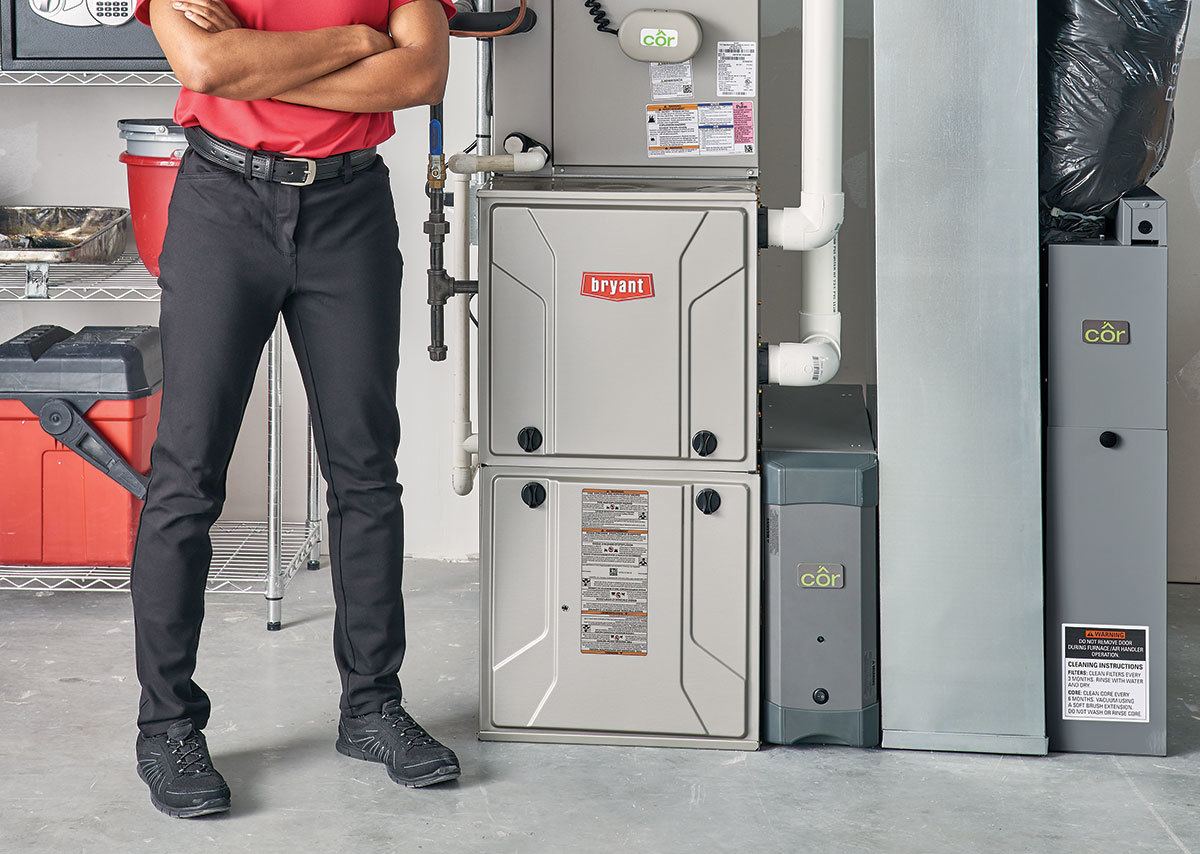Heating Emergencies Explained: What Are the Warning Signs?
Introduction
When the winter chill sets in, there's nothing more comforting than a warm home. But what happens when your heating system suddenly fails? Heating emergencies can strike at any time, leaving you in a cold sweat—literally. Understanding the warning signs of potential heating failures is essential to keeping your home comfortable and safe. In this comprehensive guide, we’ll explore various aspects of heating emergencies, including how to identify them, what actions to take when they occur, and when to call for emergency furnace repair or emergency HVAC services.
Heating Emergencies Explained: What Are the Warning Signs?
Heating emergencies can manifest in several ways. It's crucial to know these signs early on to prevent further damage and costly repairs down the line. Here are some common indicators that you may be facing a heating emergency:
1. Unusual Noises from Your Furnace
Hearing unfamiliar sounds coming from your furnace can be alarming. Common noises like grinding, squeaking, or banging often indicate mechanical issues. These sounds may suggest that parts are worn out or misaligned, necessitating immediate attention from an emergency HVAC repair service.
2. Inconsistent Heating Throughout Your Home
If certain rooms in your home are significantly colder than others, there could be a problem with your heating system. This inconsistency might indicate ductwork issues or a failing thermostat that needs urgent evaluation.
3. Strange Odors Emitting from Vents
A burning smell isn't something you want wafting through your house. If you detect unusual odors, particularly a burning or electrical smell, it’s critical to shut off your system immediately and seek emergency heating repair near you.
4. Frequent Cycling On and Off
Is your furnace constantly cycling on and off? This behavior could be due to a malfunctioning thermostat or other internal components that may require urgent professional assistance.
5. Increased Energy Bills Without Reason
If you've noticed an unexplained spike in energy bills during winter months when usage should be steady or declining, it could signal inefficiencies in your heating system that need addressing sooner rather than later.
6. Lack of Heat Production
One sign of a serious issue is no heat being produced at all. You might hear the furnace running but feel nothing but cold air blowing through the vents—this calls for immediate inspection by 24-hour furnace repair professionals.
Common Causes of Heating Emergencies
Understanding what causes these emergencies can help homeowners take preventative measures before they escalate into full-blown crises.
1. Dirty Filters
Clogged filters restrict airflow and cause the system to work harder than necessary, leading to overheating and breakdowns over time.
2. Mechanical Failures
From broken belts to malfunctioning blowers, various mechanical parts within a heater can fail unexpectedly.

3. Thermostat Issues
A faulty thermostat can lead to incorrect temperature readings and improper functioning of your heating system.
4. Duct Leaks
Leaky ducts allow heated air to escape before reaching its intended destination, resulting in inefficient heating and increased costs.
5. Electrical Problems
Faulty wiring or circuit board failures can disrupt power supply to the unit and cause complete shutdowns.
What To Do When You Experience A Heating Emergency?
Experiencing a heating emergency can be stressful; however, knowing how to respond properly is vital for safety and efficiency.
1. Turn Off Your System Immediately
If you notice any alarming signs such as strange noises or smells, turn off your heating system right away to prevent further damage.
2. Check Your Thermostat Settings
Ensure that the thermostat is set correctly—sometimes it's as simple as adjusting settings back into alignment with desired temperatures.
3. Inspect Circuit Breakers
Sometimes a blown fuse might lead to sudden loss of heat; check if any breakers have tripped before calling for repairs.
4. Look for Obstructions Around Your Heater Vents
Make sure furniture or other items aren’t blocking vents which could reduce airflow throughout the house causing inadequate temperature control.
How To Find Emergency HVAC Repair Near Me?
When facing an unexpected heating issue during cold weather conditions, finding reliable services quickly is essential! Here’s how:
Use Google Search: A quick search for "emergency HVAC repair near me" will yield results tailored specifically for your locality.

Ask Neighbors: Word-of-mouth recommendations from neighbors who've dealt with similar issues can lead you towards trustworthy service providers.
Check Online Reviews: Platforms like Yelp and Angie's List offer insights into customer experiences with local companies.
Call Multiple Services: Don’t hesitate—call several companies until you find one available 24 hours!
Emergency HVAC Service: When Is It Necessary?
Knowing when to call for an emergency service is key:
- If there’s no heat after troubleshooting basic issues,
- If strange odors persist even after turning off the unit,
- Or if you face extreme temperature drops inside during severe winter storms,
These are clear indicators that professional help is needed immediately!
FAQs
Q1: How do I know if my furnace needs emergency repair? A1: Look out for unusual noises, odors, inconsistent temperatures across rooms, or frequent cycling on/off patterns which indicate potential failure risks requiring immediate attention from professionals specializing in 24-hour furnace repair services near you!
Q2: Can I perform DIY repairs on my heating system? A2: While some minor maintenance tasks like changing filters are doable at home; tackling complex repairs without proper training isn’t advisable—it’s safer (and often cheaper) overall just call certified technicians instead!
Q3: What should I do if I smell gas coming from my heater? A3: Shut off all appliances immediately! Leave premises right away without using electronics (including phones)—then contact local gas utility authorities along with emergency services who specialize in resolving hazardous situations promptly & safely!
Q4: How often should I schedule maintenance checks on my HVAC system? A4: Ideally twice yearly—once before summer cooling season begins & once prior winter arrives—to ensure optimal functionality throughout changing climates & extend lifespan effectively too!
Q5: Is it expensive hiring an emergency HVAC service provider? A5: Costs vary based upon extent of needed repairs plus location; however choosing reputable professionals often saves money long-term vs neglecting problems until they worsen significantly later down line!
Q6: What steps should I take before calling an emergency repair service? A6: Turn off heat source if necessary; inspect thermostats/circuit breakers thoroughly; Get more info clear blockages around vents then gather relevant info about model/issue details beforehand contacting specialists directly ensures smoother communication process overall!
Conclusion
Heating emergencies can pose significant risks not only concerning comfort but also safety within households during those harsh winters! Being aware of warning signs early promotes proactive measures allowing timely interventions rather than waiting until circumstances reach crisis levels where costs rise exponentially alongside inconvenience accrued! If ever unsure about handling any situation regarding malfunctioning systems don’t hesitate reaching out experienced technicians offering reliable 24-hour response times ensuring peace-of-mind throughout chilly nights ahead!